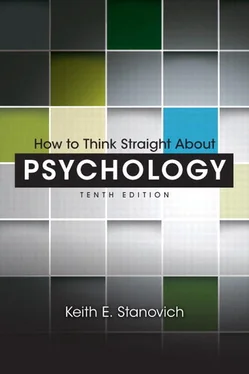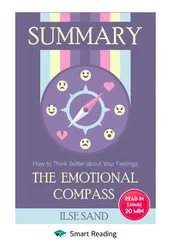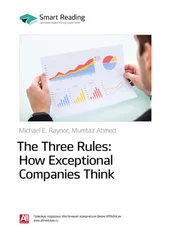The statement that the study of ESP and other paranormal abilities is not accepted as part of the discipline of psychology will undoubtedly provoke the ire of many readers. Surveys have consistently shown that more than 40 percent of the general public believes in the existence of such phenomena and often holds these beliefs with considerable fervor (Farha & Steward, 2006; Kida, 2006; Shermer, 2011). Historical studies and survey research have suggested why these beliefs are held so strongly (Begley, 2008; Humphrey, 1996; Park, 2008; Stanovich, 2004). Like most religions, many of the so-called paranormal phenomena seem to promise things such as life after death, and for some people, they serve the same need for transcendence. It should not be surprising, then, that the bearer of the bad tidings that research in psychology does not validate ESP is usually not greeted with enthusiasm.
The statement that psychology does not consider ESP a viable research area invariably upsets believers and often provokes charges that psychologists are dogmatic in banishing certain topics from their discipline. Psychologists do not contribute to public understanding when they throw up their hands and fail to deal seriously with these objections. Instead, psychologists should give a careful and clear explanation of why such objections are ill founded. Such an explanation would emphasize that scientists do not determine by edict which topics to investigate. No proclamation goes out declaring what can and cannot be studied. Areas of investigation arise and are expanded or terminated according to a natural selection process that operates on ideas and methods. Those that lead to fruitful theories and empirical discoveries are taken up by a large number of scientists. Those that lead to theoretical dead ends or that do not yield replicable or interesting observations are dropped. This natural selection of ideas and methods is what leads science closer to the truth.
The reason that ESP, for example, is not considered a viable topic in contemporary psychology is simply that its investigation has not proved fruitful. Therefore, very few psychologists are interested in it. It is important here to emphasize the word “contemporary,” because the topic of ESP was of greater interest to psychologists some years ago, before the current bulk of negative evidence had accumulated. As history shows, research areas are not declared invalid by governing authorities; they are merely winnowed out in the competing environment of ideas.
ESP was never declared an invalid topic in psychology. The evidence of this fact is clear and publicly available (Farha, 2007; Hines, 2003; Kelly, 2005; Marks, 2001; Milton & Wiseman, 1999; Park, 2008; Wiseman, 2011). Many papers investigating ESP have appeared in legitimate psychological journals over the years. As recently as 2011, a major APA journal published a paper on a parapsychological effect (Bem, 2011). Alas, as is so often the case, the effects reported appear not to be reliable (Rouder & Morey, 2011; Wagenmakers, Wetzels, Borsboom, & van der Maas, 2011).
Parapsychologists who thrive on media exposure like to give the impression that the area is somehow new, thus implying that startling new discoveries are just around the corner. The truth is much less exciting. The study of ESP is actually as old as psychology itself. It is not a new area of investigation. It has been as well studied as many of the currently viable topics in the psychological literature. The results of the many studies that have appeared in legitimate psychological journals have been overwhelmingly negative. After more than 90 years of study, there still does not exist one example of an ESP phenomenon that is replicable under controlled conditions. This simple but basic scientific criterion has not been met despite dozens of studies conducted over many decades. Many parapsychologists and believers themselves are even in agreement on this point. In short, there is no demonstrated phenomenon that needs scientific explanation. For this reason alone, the topic is now of little interest to psychology.
And now the irony. Psychologists have played a prominent role in attempts to assess claims of paranormal abilities. The importance of their contribution is probably second only to that of the professional magicians, who have clearly done the most to expose the fraudulent nature of most purported demonstrations of paranormal abilities (Randi, 2011). Many of the most important books on the state of the evidence on paranormal abilities have been written by psychologists.
The irony, then, is obvious. Psychology, the discipline that has probably contributed most to the accurate assessment of ESP claims, is the field that is most closely associated with such pseudosciences in the public mind. Psychology suffers greatly from this guilt-by-association phenomenon. As will be discussed in greater detail later, psychology is often the victim of a “double whammy.” Here is just one example. The assumption that anything goes in psychology, that it is a field without scientific mechanisms for deciding among knowledge claims, leads to its being associated with pseudosciences such as ESP. However, if psychologists ever become successful in getting the public to recognize these pseudosciences for what they really are, the pseudosciences’ association with psychology will be seen as confirmation that psychology is indeed not a science!
The third category in the bookstore psychology section is the so-called self-help literature. There are, of course, many different genres within this category (Lilienfeld, Lynn, & Lohr, 2003; Meyers, 2008). Some books are spiritually uplifting tracts written with the purpose of generally increasing feelings of self-worth and competence. Others attempt to package familiar bromides about human behavior in new ways. A few (but all too few) are authored by responsible psychologists writing for the general public. Many that are not in the latter category vie for uniqueness by presenting new “therapies” that are usually designed not only to correct specific behavioral problems but also to help satisfy general human wants (making more money, losing more weight, and having better sex are the “big three”), thereby ensuring larger book sales. These so-called new therapies are rarely based on any type of controlled experimental investigation. They usually rest on personal experience or on a few case histories, if the author is a clinician. This is often true of the treatments of so-called alternative medicine.
The many behavioral and cognitive therapies that have emerged after painstaking psychological investigation as having demonstrated effectiveness are usually poorly represented on the bookshelves. Lilienfeld (2012) estimates that of the 3,500 self-help books that are published each year, only about 5 percent of them have any scientific validation.
The situation is even worse in the electronic media and the Internet. Radio and TV carry virtually no reports of legitimate psychology and instead present purveyors of bogus “therapies” and publicity-seeking media personalities who have no connection to the actual field of psychology. The main reason is that the legitimate psychological therapies do not claim to provide an instant cure or improvement, nor do they guarantee success or claim a vast generality for their effects (“Not only will you quit smoking, but every aspect of your life will improve!”).
It is similar in the case of the Internet. The lack of peer review ensures that the therapies and cures that one finds there are often bogus. Here is one example. In 2008, Paul Offit published an important book titled Autism’s False Prophets, in which he detailed the many treatments for autism that have been found to be bogus by actual scientific research but that have enjoyed popularity among parents desperate for a treatment to help their children. One, facilitated communication, I have discussed in Chapter 6. Offit describes many other pseudoscientific treatments that have falsely raised parents’ hopes and have led them to spend thousands of dollars and to waste their time and energy chasing a bogus “cure.” On January 5, 2012, I identified one of the bogus chemical “cures” for autism discussed in Offit’s book (I will not name it in order not to add to its publicity) and typed it and the word “autism” into Google. Of the first ten links that appeared in the outcome of my search, three links were to websites that were advocating this totally bogus chemical “cure.” Scientific accuracy is not guaranteed in a Web search because websites are not peer reviewed. They thus provide no consumer protection for the random searcher with no further knowledge of the scientific literature on the topic in question.
Читать дальше












